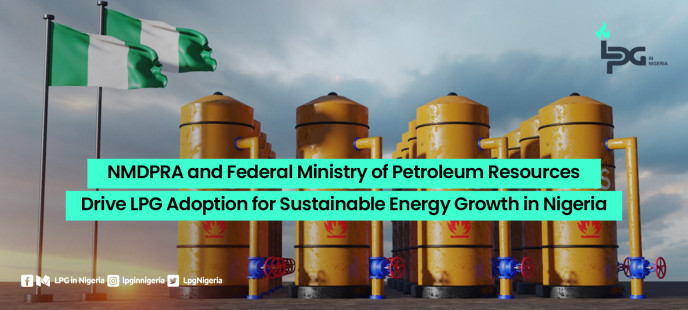- 4308
- 0
Sharing Ideas and Updates on LPG in Nigeria and related information to enable effective collaboration within the LPG Value Chain
NMDPRA And Federal Ministry Of Petroleum Resources Drive LPG Adoption For Sustainable Energy Growth In Nigeria

The Federal Ministry of Petroleum Resources and the Nigerian Midstream and Downstream Petroleum Regulatory Authority (NMDPRA) have reaffirmed their commitment to boosting the use of Liquefied Petroleum Gas (LPG), also known as cooking gas, among Nigerians. This was a central theme during the 2024 National Conference of the Nigerian Association of Liquefied Petroleum Gas Marketers (NALPGAM), which focused on Sustainable Energy Growth in Nigeria, held in Lagos.
Government's Commitment to Expanding LPG Use
During the conference, key stakeholders, including government officials, regulatory bodies, and industry players, came together to discuss strategies for enhancing LPG adoption across the country. The Minister of State for Petroleum Resources (Gas), Ekeperikpe Ekpo, represented by Abel Nsa, emphasized the Federal Government’s dedication to increasing LPG usage as part of its broader Decade of Gas Initiative.
“Our target is ambitious: to increase LPG consumption in Nigeria to five million metric tonnes per annum by 2030,” Ekpo said in his keynote address. He stressed that achieving this goal would require expanding infrastructure and creating favorable market conditions to attract investments in the LPG value chain.
Health, Environmental, and Economic Benefits of LPG
Ekpo also highlighted the health and environmental benefits of increasing LPG adoption, noting that it offers a cleaner alternative to traditional biomass, which many Nigerians still rely on for cooking. “LPG offers immediate and long-term benefits for our energy transition,” he stated, pointing out that it could improve indoor air quality and contribute to reducing the negative environmental impact of biomass use.
As part of this drive, the Federal Government is working on an LPG Cylinder Distribution Programme, which aims to transition 250,000 homes to clean cooking solutions within the next decade. “We are working tirelessly to ensure that this programme reaches every corner of Nigeria,” Ekpo added.
In addition to health and environmental benefits, Ekpo stressed the importance of LPG for energy security. “Increasing LPG usage domestically will reduce the strain on our other energy resources, enhance energy security, and protect us from the volatility of international energy markets,” he explained.
NMDPRA's Role in LPG Growth and Infrastructure Development
Speaking at the conference, the Executive Director of Distribution Systems, Storage, and Retailing Infrastructure at NMDPRA, Ogbugo Ukoha, outlined regulatory strategies to foster LPG growth. While progress has been made in promoting LPG usage, Ukoha acknowledged that several challenges remain, including limited gas processing capacity, insufficient local cylinder production, and the need for better compliance with safety standards.
Ukoha highlighted the importance of addressing these challenges to unlock the full potential of LPG in Nigeria. He also discussed the role of the Midstream and Downstream Gas Infrastructure Fund, which has supported investments in LPG infrastructure, encouraging marketers to submit qualified proposals for funding.
“As recently as last week, the MDGIF awarded its first phase of equity participation in the total sum of N122bn to six gas infrastructure projects,” Ukoha revealed, urging stakeholders to collaborate closely to ensure affordability, accessibility, and sustainability in the LPG sector.
Industry Leaders Optimistic About the Future
The National President of NALPGAM, Abideen Olatunbosun, echoed the optimism of government officials, stating that LPG has a critical role in shaping Nigeria’s energy future. Olatunbosun called for increased investments in infrastructure and technology to tackle the pressing challenges facing the sector.
“Recent events in Nigeria have reshaped the oil and gas industry,” Olatunbosun said, citing the impact of the Petroleum Industry Act and the growing presence of indigenous investors in the sector. He encouraged stakeholders to unite, saying, “Let all of us be pillars of support to energy sustainability in Nigeria.”
The Road Ahead for LPG in Nigeria
The collaborative efforts of the Federal Ministry of Petroleum Resources, NMDPRA, and other industry stakeholders mark a significant step toward achieving sustainable energy growth in Nigeria. With the government’s ambitious goals and ongoing investments in LPG infrastructure, the future of cooking gas in Nigeria looks promising, bringing both economic and environmental benefits to millions of households.
















0 Comment.